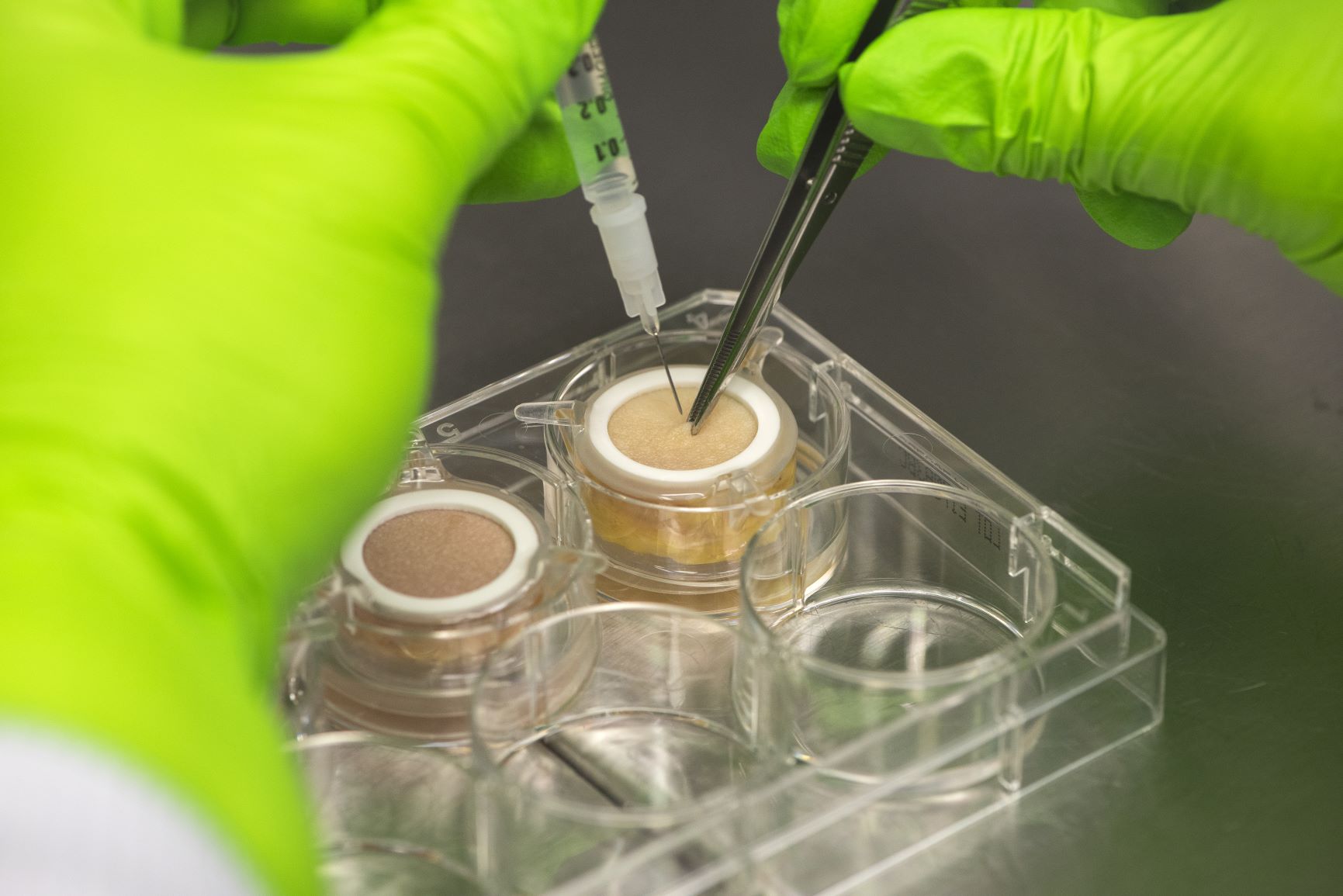Share this post:

Toulouse, France & Salem, MA, USA, July 6, 2021 – Genoskin, a biotechnology company that provides transformative platforms and tools leveraging human skin to test therapeutic and non-therapeutic products, today announces the launch of its ISR platform®, a new pre-clinical toolbox designed to study injection site reactions (ISR) in humans, ahead of clinical trials. The company has filed intellectual property to protect its transformative platform worldwide. With the ISR platform®, Genoskin can support the development of safer new biologics by characterizing mast cell-dependent (pseudo-allergy) or -independent inflammatory skin adverse events. The platform is available immediately for clients worldwide.
Subcutaneous injected biologics have emerged as a major focus within the pharmaceutical industry, thanks to lower-cost effectiveness, shorter administration time leading to better therapy compliance, possibilities of new patent protection when changing route of administration for the sponsor, etc. However, this method is not free from side effects: patients commonly experience moderate to severe reactions at the site of injection, including swelling, erythema, pruritus or pain. All of biologics can lead to injection site reaction, which is the most reported adverse effect. The current lack of research tools to study injections in humans makes development of such therapeutic molecules very challenging, especially when animal testing is the only option for companies.
With its patented technologies and the patent-pending ISR Platform®, Genoskin provides researchers globally with a new turnkey solution, enabling the testing of subcutaneous biologics in ready-to-use, standardized, fully immunocompetent and injectable ex vivo human skin models. Based on living and healthy human skin, the company’s proprietary technology maintains the tissue in a functional survival state for at least seven days. The ISR platform® also incorporates complementary technologies leveraging Genoskin’s ability to produce and culture human primary mast cells. Testing of multiple conditions in parallel and in the same donor is now possible. This provides drug developers with earlier access to true – not predicted or emulated – first-in-human data, ahead of clinical trials.
“Imagine the possibilities now that we can characterize what happens in a human without using an actual patient. Our biotech and pharma clients can save time and reduce costs while securing their drug development,” said Pascal Descargues, Ph.D., CEO of Genoskin. “As a partner research organization with strong expertise in skin physiology, human immunology and cell-based assays, our aim is to transform how drugs are developed today by reducing the high attrition rate in clinical development, thus increasing the number of available therapeutic options for patients. We are in a continued innovation process, heavily investing in our R&D, and are preparing for a new funding round to support our rapidly growing development.”
Validated by recognized industry partner Catalyst Biosciences
Catalyst Biosciences (NASDAQ: CBIO), a biopharmaceutical company focused on hematology disorders, was an early adopter of Genoskin’s ISR platform. A phase 1/2b study clearly demonstrated that DalcA, used in patients with Hemophilia B, was well tolerated and efficacious, with the absence of bleeding events through washout. However, some subjects reported mild to moderate injection site reactions (ISRs) of pain and/or redness following initial subcutaneous injections. In order to find a better formulation for the drug, the company leveraged the Genoskin HypoSkin® ex vivo model to perform histological, cellular and proteomic assays. A study demonstrated that DalcA activated the Mass-related G protein-coupled receptor X2 (MRGPRX2), a specific receptor found on skin resident mast cells. Testing different variations, Catalyst Biosciences was able to identify a new formulation buffer for DalcA with a favorable proteomic signature in ex vivo human skin, suggesting a lower risk of clinical ISRs appearance. An abstract was released on July 2 and will be presented at the ISTH 2021 on July 19.
The transformative ISR platform® is composed of these complementary assays at these three levels:
- Organ – Genoskin can analyze in situ mast cell degranulation and release of pro-inflammatory cytokines upon subcutaneous injection of a molecule
- Cellular – functional human primary mast cells in culture are used to study the direct effect of a molecule on mast cell degranulation
- Molecular – complementary cell line assays are used to evaluate the capacity of a molecule to bind and activate MRGPRX2
The subcutaneous biologics market is growing rapidly: from $88 billion (€74.1bn) in 2018, it is projected to grow to $169 billion (€142.3bn) by 2030. Today, over 5,000 drug candidates are being investigated for subcutaneous routes.
Genoskin’s ISR platform explained in video here.
About Genoskin
Genoskin provides transformative platforms and tools leveraging human skin to test therapeutic and non-therapeutic products and generate actionable human data as a reliable alternative to animal experiments. Genoskin uses real human tissues, prepared from donated human skin leftovers ethically sourced from plastic surgeries, and innovative technologies to maintain viability, immunocompetency and functionality of the human skin samples in a ready-to-use ex vivo culture system. Genoskin was founded in 2011, as a spin-off of the French National Center for Scientific Research (CNRS) and The Paul Sabatier University in Toulouse.

